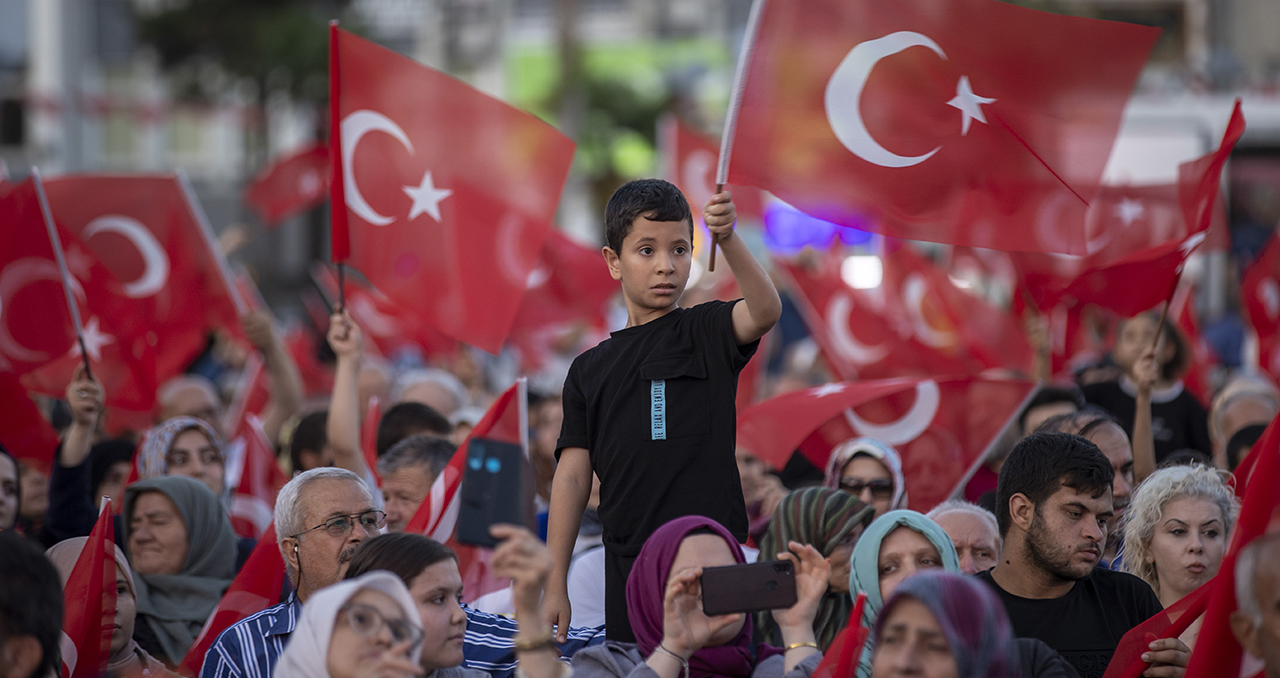If there is one golden rule for understanding Turkish politics, it is this: You can never take anything for granted in Turkey. A case filed against the ruling Justice and Development Party (AK Party) has come as a shock to many Turks as well as international observers.
The case represents the last stage of the militant nature of Turkish secularism. But it also heralds the beginning of a new period for both the AK Party and Prime Minister Recep Tayyip Erdoğan.
First things first: How serious is the case? According to legal experts: very. The Constitutional Court has the authority to close down the AK Party, as it did other political parties before. However, the main target is not the AK Party but Prime Minister Erdoğan. Why? Everyone knows that without Erdoğan’s leadership, the AK Party will mean very little on the Turkish political scene. AK Party supporters and others may vote for it for another term and mostly out of anger and frustration with the case. But that is it. There does not seem to be an alternative leadership that will carry the AK Party forward in case of Erdoğan’s banishment from politics. In this sense, the list of 71 names cited in the case file was made up to target one person only: Erdoğan himself.
This may sound too pessimistic, but remember what happened to Turgut Özal’s Motherland Party (ANAP). After landslide victories at the ballot box and huge strides made in the economy, social services and foreign policy, ANAP begun to decline as fast as it rose. After Özal left ANAP’s driving seat and became president, ANAP was in disarray. After his death in 1993, there was nothing left of ANAP. As of today, ANAP is practically non-existent in Turkish politics.
The case filed by the Supreme Court of Appeals chief prosecutor has nothing to do with law or the constitutional principles of the Turkish state. The accusations are ludicrous. Here is a sampling of statements the prosecutor considers to be violations of the principle of secularism: “In Turkey, where the 99 percent of the population is Muslim, religion is a cement (uniting different groups)” (p. 29), “A democratic country should provide religious freedom … the headscarf ban is not in tune with liberal (principles)” (p. 34), “We want to solve the headscarf issue through a consensus with other political parties” (p. 35), “We aim to end all cases of discrimination by creating a general consensus on civil liberties” (p. 45), “My biggest wish is a country where girls wearing a headscarf and those without a headscarf would walk hand in hand” (p. 48), “Devout people, too, have a right to engage in politics in this country” (p. 52), “It is a sad that our young female students are barred from education just because of their headscarf” (p. 74), “(on whether the headscarf is mandated by Islam or not) The authority that can give a final decision is the High Council for Religious Matters of the Directorate of Religious Affairs” (p. 83), “The headscarf ban is against human rights” (p. 91), “Devout Turks who want to engage in modern life are discriminated against” (p. 91), “… Turkey has become the co-sponsor of the Greater Middle East project which promotes the ideology of ‘moderate Islam’” (p. 117).
This is just a sampling of the accusations or reasons for the alleged violation of the principles of secularism. With those and other statements, any party, including the secularist Republican People’s Party (CHP) can be closed down. It was the CHP more than any other party that engaged in a debate about the religious foundations of the headscarf. CHP leader Deniz Baykal said in numerous speeches that the headscarf was not mandated by Islam, thereby making a religious argument. Is this not a violation of secularism as understood by the prosecutor?
Why is the Nationalist Movement Party (MHP) not there with the AK Party? If the const








